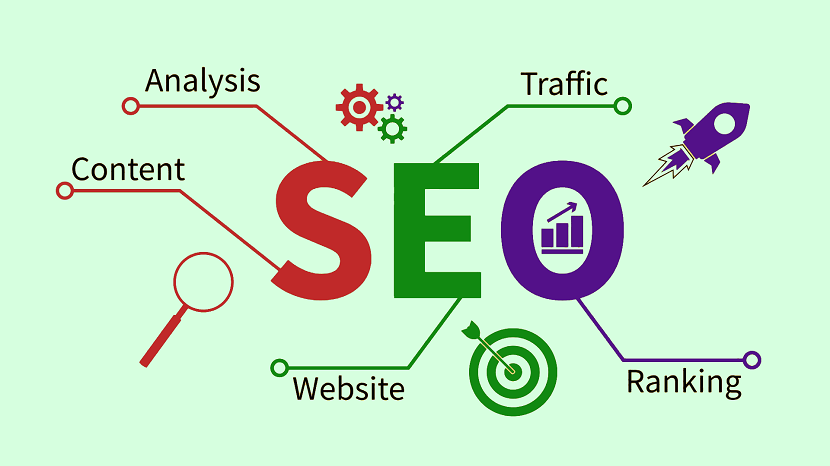- The digital world has transformed, and it is crucial for businesses of all sizes to have a website. If you are a startup, a reputable brand, or a sole proprietor, your online presence plays a crucial role in your success. When you are creating a new website, you usually have two main options, these are: Custom website development or opting for pre-designed website templates. Selecting the right option can affect the performance of your website, scalability, and security. If you want to build a website that is unique, offers a streamlined user experience, and is optimized for search engines, you will have to hire a website development service company that provides professional SEO services. Furthermore, Technical SEO plays a major role in ensuring that your website is easily discoverable by search engines. The blog will provide in-depth detail of both options, covering their advantages, disadvantages, and main factors to consider when making your decision.
What is Custom Website Development?
- Custom website development is the procedure of developing a new website customized specifically as per the unique needs, goals, and target audience of a business or an individual. Unlike using pre-designed templates or pre-packed solutions, custom development consists of creating a website from scratch, providing complete control over its design, features, and functionality.
Pros and Cons of Using Custom Website Development
Pros
- Unique and customized design- Custom websites are created specifically for a brand, making sure a unique and professional look is created that sets a brand apart from its competitors. They enable complete creative control on the layout, color schemes, and even functionality.
- Scalability and flexibility– Custom websites are created with scalability in mind, which makes it easier to add new features and adapt to future business needs without any limitations. The custom website grows as your business progresses and can be changed or updated if needed.
- Better security- Custom website development consists of advanced security measures customized as per your business-specific needs, this reduces vulnerabilities compared to already created templates.
- Better user experience- Custom development focuses on user-centric design, providing intuitive navigation, fast loading times, and optimized content for effective engagement. It also provides easily functional, and logical content organizations, enhancing user satisfaction and decreasing bounce rates.
- SEO performance- Custom websites are also optimized for search engines and are personalized with personalized meta tags, content structure, as well as schema markup They also provide better speed optimization and compliance with the best SEO practices, which also improves rankings.
Cons
- Longer development time– Creating a custom website consists of extensive planning and coding which takes more time when compared to using already designed templates or website builders. This long timeline can also delay the launch of a brand.
- Maintenance difficulties– Managing and maintaining a customized website is a tedious task. Updates, bug fixes, and even adding new features usually require professional help, unlike pre-designed templates where changes are easy to make by non-technical users.
- Overkill for small businesses– Small businesses usually have simple needs and a custom website may be too much. Pre-designed templates and platforms such as WordPress usually provide sufficient features at a nominal cost.
What are Website Templates?
- Website templates are typically predesigned layouts and frameworks used to develop websites in a short time. These templates provide the structure, design, and main elements of a website enabling users to focus on adding their own content without any extensive coding or design expertise.
Pros of Using Website Templates
- Easy to use- Templates are often user-friendly and usually include drag-and-drop builders, making personalization easy even for those individuals who don’t have any technical expertise. This reduces the need for specialized coding knowledge.
- Cost-effective- Templates are mainly cheaper than personalized website development, with several free and affordable premium options available. This makes them suitable for startups and even small businesses with limited resources.
- Built-in features- Several templates come with pre-incorporated functionalities like SEO tools, contact forms, responsive designs, and even navigation menus. This eliminates the need for additional plugin and development work.
- Faster development- Website templates are also available in pre-deigned layouts, functionalities, and features enabling easy setup and launch. Some templates also include demo content, allowing users to have a properly functional website in hours.
Cons of Using Website Templates
- Limited Personalization– Templates usually have restricted design and functionality options, which makes it difficult to fully personalize the website in order to align with a brand’s unique identity and certain needs. This can also down the creativity and also limit branding potential.
- Poor SEO optimization- Several templates are not structured for effective SEO practices like proper use of headings, images, mobile responsiveness, and alt text for images. This can negatively impact rankings on search engines and organic traffic.
- Mobile responsiveness issues- Not all templates are optimized for mobile devices, especially old and free templates. This often results in poor user experience for mobile users, who make up a major portion of web traffic.
- Code quality concerns- The underlying code of a few templates is sometimes poorly written and bloated, this leads to technical issues and leads to bad performance.
Factors to Consider When Selecting Between Custom Development and Website Templates
Budget
- Custom website development is usually more expensive but provides long-term benefits whereas Templates are affordable and often have lower initial costs.
Personalization and flexibility
- Custom website development provides unlimited personalization, allowing brands to create their own unique features and functionalities that align with their business needs. Limited personalization options, while there are some changes, templates usually restrict flexibility in design along with functionality.
Uniqueness and branding
- Custom website development ensures a unique website customized as per your brand’s identity, assisting a brand to stand out in the market. Templates usually result in generic designs that are used widely by others, which often dilutes a brand’s unique personality.
Scalability
- Custom website development is highly scalable, which makes it suitable for developing a business that may need to add complex features or handle increased traffic in the future. Templates usually struggle with scalability as they are created for general use and may not support advanced features and even high-traffic demands without any major changes.
SEO optimization
- Custom website development also provides advanced security measures created specifically to protect sensitive data. Templates are more vulnerable to security risks because of dependency on third-party plugins and widely available codebases.
Conclusion
- Custom website development and website templates usually have their pros and cons. Your decision should be aligned with your business goals, long-term plans, and budget. If you focus on flexibility, security, and scalability, custom website development is your best choice as it enables you to create a unique and high-performing website personalized per your business needs. However, if you are looking for a quick, budget-friendly solution with nominal personalization, templates are a practical choice. If you need assistance to develop your brand’s website, contact Pentra SEO services and our team will assist you in creating a website tailored to your brand’s needs.
- Contact us and our team of experts will get back to you in 24 hours.






